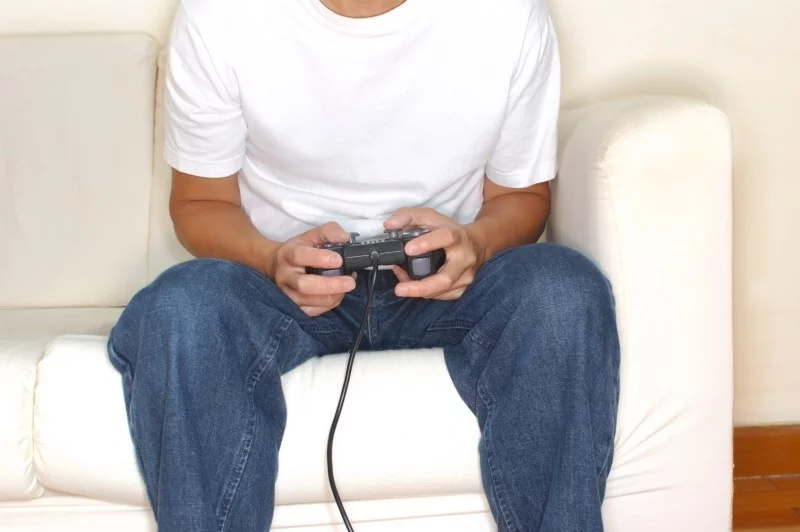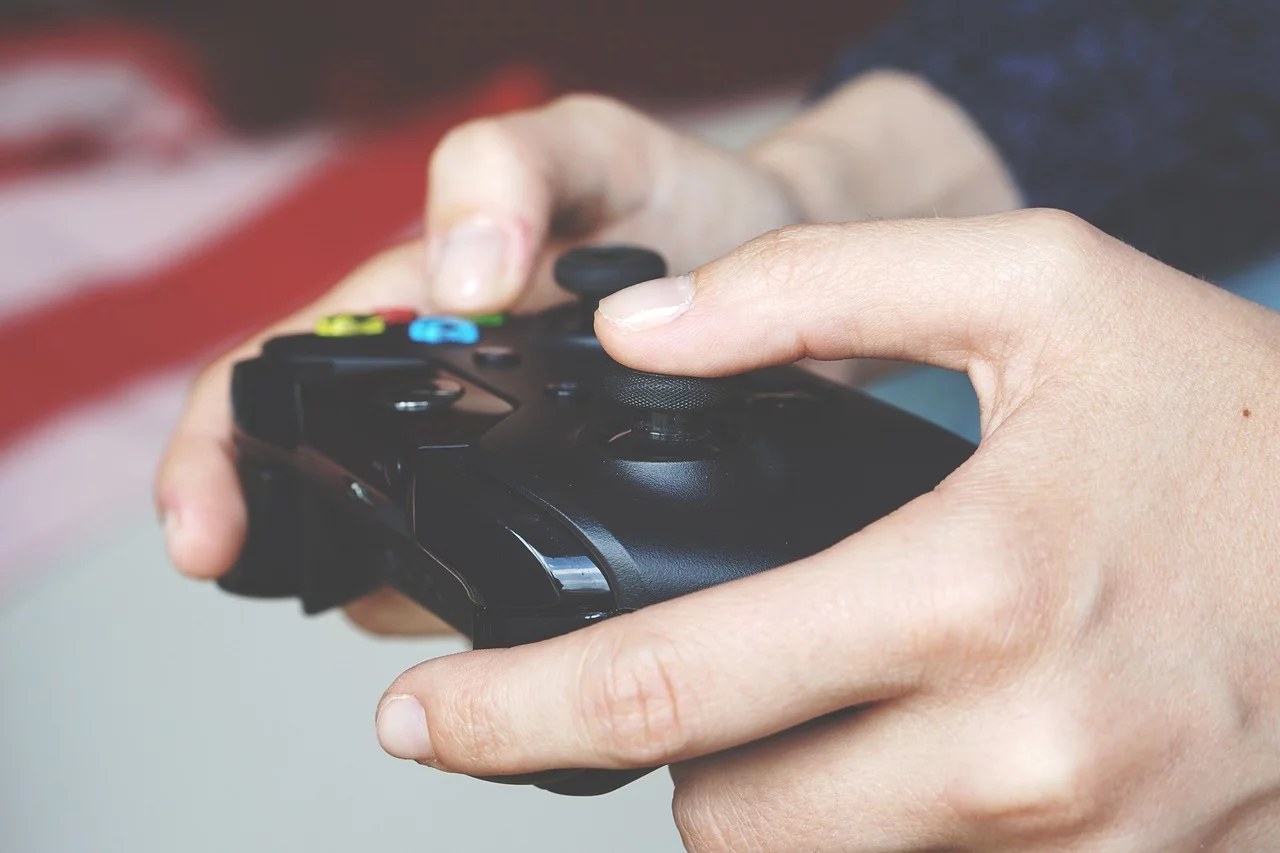The Signs and Effects of Video Game Addiction
Quick links for Video Game Addiction
- Signs and Symptoms of Video Game Addiction
- Triggers for Video Game Addiction
- Treatment for Video Game Addictions and Other Behavioural Addictions
- Habits to Help Cope with Video Game Addiction
- Misconceptions and Stigmas Surrounding Video Game Addiction
- Co-Occurring Disorders: Treating Video Game Addiction and Other Conditions at Rehab
- Getting Help for Video Game Addiction Today
- References for the Signs and Effects of Video Game Addiction
A video game addiction is a form of behavioural addiction.
A behavioural addiction is similar to substance addiction, however, rather than being addicted to the substance which you consume, the addicted person is severely dependent on performing the same behavioural patterns over and over.
In the case of video game addiction, the addicted person struggles to control their severe habits of playing video games or their thoughts which are preoccupied with video games.
While video games are designed to be fun, exciting, engaging, and maybe addictive to a certain degree, someone who is suffering from video game addiction may find that their obsession is negatively impacting their lives in the social, occupational, academic, or other facets.
The video game industry is highly popular, especially among younger and male demographics, however, it is estimated that around 1.4% of gamers develop video game addiction.[1]
Additionally, just under 10% of gamers are considered to be “problem gamers”, and this can develop into video game addiction.
Starting to spot the signs and effects of video game addiction? Call our team on 0800 088 66 86
Signs and Symptoms of Video Game Addiction

Woman looking tired and suffering from the effects of video game addiction
There are many signs and symptoms of video game addiction, and they will vary from one gamer to another according to their personal characteristics and circumstances.
Some of the most prevalent signs and symptoms include:
- Compulsion to play video games: Regardless of the environments that they are in, the addicted person will experience an almost constant compulsion to play video games, whether on a video game console, on their phones, and so on.
- Preoccupation with video games despite not playing: Even when they are not playing their video games, their thoughts will be preoccupied with the ideas of playing video games, and when they may next be able to play. Regardless of whether they are on holiday, at school, work, or anywhere else, a person addicted to video games will be severely preoccupied with thoughts of playing video games.
- Irritability when abstaining: The preoccupation with video games may cause irritability when they are unable to do so, whether by choice or not.
- Social issues: A wide range of social issues can arise out of video game addiction. Due to the person’s preoccupation with their video games, they may experience social isolation, a detriment to their social skill development, relationship issues with friends and family members and more. Video games will take up a large percentage of an addicted person’s time and this will come at the cost of interacting with their loved ones.
- Declining mental and physical well-being: The functional impairment of daily life among those addicted to video games will affect their mental and physical health. Adopting a sedentary lifestyle will drastically affect the physical health of the gamer, and their mental health will suffer due to a number of factors such as decreased sleep quality and quantity, intense emotional problems, inability to complete high-priority tasks, decreased levels of socialisation, and so on.
- Neglecting personal responsibilities: Someone who is addicted will allow their time playing video games to take priority over other important responsibilities such as eating healthy, exercising, cleaning up and so on.
- Depression, anxiety and low self-esteem: Addiction to gaming is strongly linked to mental health illnesses such as anxiety and depression. A study showed a positive correlation between mental health issues such as anxiety, depression, and social isolation with mobile game addiction. [2] This relationship can work both ways, as those who are already suffering from anxiety may find comfort in video games, whereas addiction to video games may also exacerbate existing issues.
- Shame and secrecy: Having to hide their video game consumption from others, because they or others are aware of how much time they spend playing, is common among those who may feel shame or embarrassment about the severity of their addiction.
- Being unable to quit: Central to any behavioural or substance addiction is the inability to quit consuming or taking part in the addictive activity. Trying to minimise or quit these habits but being unable to is a clear indication of addiction.
- Hypnotic trance: A person addicted to video games may spend many hours consecutively playing their games because they are unaware of how much time has passed during their playtime.
- High levels of expenditure: Many games often encourage in-game purchases or a “pay to win” approach. This means that players can buy items in-game, and this increases their chances of winning. Games such as Fortnite, FIFA or Call of Duty, for example, have been criticised because of their incentivising of spending lots of money in order to increase their chances of winning.
Triggers for Video Game Addiction

Man sat on a sofa suffering from video game addiction
There are a number of triggers for video game addiction and they will vary from one person to the next according to their unique characteristics, mental health, personal problems, and more.
1. Psychological Pain and Stress
Video games can act as a form of escapism for people who are suffering from psychological pain or emotional pain. This is particularly the case for those who are stuck in toxic home environments, and they need to find a way to “escape” from their day-to-day issues.
Subjects who are suffering from career or academic pressure are also more likely to turn towards video games – and develop an addiction – in order to distract themselves from external issues.
While they are not exclusively related, video game addiction can often form a mutually destructive relationship with alcohol or other addictive substances.
One study suggests [3] that those who succumb to alcohol addiction or video game addiction are not necessarily drawn to the activities because of the stimuli to obtain pleasure, but rather to avoid the stress, anxiety, and displeasure brought on by other activities (e.g. work).
2. Boredom
Another common trigger for video game addiction is boredom. When someone is not engaging in interesting activities which promote creativity, physical and mental health, and so on, it is easy to resort to gaming for engagement.
Video games are appealing because they can pass the time in very fun ways, however, too much will again result in poor living habits.

Person using a controller and suffering from video game addiction
3. Social isolation
Video games can be played in either single-player or multiplayer modes which take place online.
If a person is suffering from social isolation, they can use single player as a form of escapism, or, they may play multiplayer games in order to use their gaming time to socialise.
Some suffering from video game addiction may have many online friends and may synchronise their gaming patterns with others online, and may feel isolated when not playing with them.
4. Insomnia & Poor Sleeping Patterns
Gaming for too long in the day and too late at night can lead to poor sleeping patterns. Prolonged exposure to blue light can suppress the body’s production of melatonin, [4] a hormone which can help us sleep.
Being unable to get high-quality sleep will leave subjects feeling worse throughout the day, and it can keep them up at night and they may turn towards gaming late at night as a coping mechanism for their insomnia and poor sleeping pattern.
Starting to spot the signs and effects of video game addiction? Call our team on 0800 088 66 86
Treatment for Video Game Addictions and Other Behavioural Addictions

Patient speaking with a therapist about video game addiction
In order to overcome a behavioural addiction like video game addiction, patients will need to seek professional counselling.
While it may not be as intense as a treatment programme at a drug and alcohol rehab, patients will need to undergo some form of cognitive, behavioural, emotional or holistic therapy.
Each case of addiction is different, and this means that each patient will undergo a slightly different form of treatment programme.
Because the addiction severity, mental health, physical health, and support network is different from one patient to another, a rehabilitation programme will place focus on personalisation in order to optimise recovery.
Some of the most popular recovery methods include:
1. Cognitive Behavioural Therapy
Cognitive Behavioural Therapy, or CBT, is a highly popular and effective form of treatment, whether it is applied to treat those suffering from behavioural addiction, substance addiction and a wide range of mental health issues such as anxiety, depression and more.
It is typically a significant aspect of someone’s rehabilitation process.
The objective of Cognitive Behavioural Therapy is to help patients understand and address their problematic behaviour patterns.
A licensed counsellor will help the patient understand not only what they do which affects their life, but why they take part in these behaviours. This can help them not only identify negative habits but how they can address them.
2. Dialectical Behavioural Therapy
Dialectical Behavioural Therapy, or DBT, is similar to CBT but it is particularly helpful in helping patients identify and address underlying emotional issues. Behavioural addictions often stem from patients suffering from mental and emotional issues and using this form of behaviour as a coping mechanism.
Patients experiencing intense feelings and emotions will be able to overcome these issues by developing healthier coping mechanisms. Dialectical Behavioural Therapy will teach them how to be more mindful and rational, as well as instruct them on how to address mental issues constructively.

People walking through a forest during holistic therapy for video game addiction
3. Holistic Therapy
Holistic therapy is centred on the idea of holism, that everything is connected. Our mental, physical, and spiritual health are intertwined and a detriment in one will lead to a detriment in the other.
Holistic therapy utilises a vast range of activities and therapies which benefit people physically, mentally and spiritually.
Common holistic therapies for video games and other addictions include:
- Adventure therapy
- Art therapy
- Music therapy
- Drama therapy
- Yoga and meditation
- Equine therapy
These examples of holistic therapy often allow patients to exercise independence in environments which foster physical activity, social interaction, problem-solving and organisational skills.
These are highly effective in facilitating behavioural activation.
Behavioural activation [5] is effective in treating patients who are suffering from addiction and depression, among other illnesses.
The theory behind behavioural activation is that when people complete tasks or achieve something, it will positively influence their mental and emotional health.
For example, completing a bout of exercise, cooking a meal, or submitting an assignment can facilitate behavioural activation. Completing tasks, whether big or small, can profoundly benefit our mental health.
4. Family Therapy
Family therapy is a huge component of addiction recovery because friends and family members typically play an important role in the addicted person’s support network.
By educating the friends and family members and keeping them connected to the recovery process, this strengthens the addicted person’s support network and can help them maintain healthy habits.
Family therapy can come in a wide range of styles, such as family behaviour therapy, multidimensional family therapy, emotional counselling, safeguarding, and more.
A counsellor will work with the addicted person and their family members in order to improve communication, foster more positive relationships, address toxic habits, and much more.
Habits to Help Cope with Video Game Addiction

Two people sat outside talking about video game addiction
There are many habits which subjects can adopt outside of therapy and counselling in order to improve their quality of life and minimise the severity of their video game addiction:
Each patient will have different interests and characteristics, and there are activities which are uniquely interesting to them which can help them sustain a positive and healthy life.
- Exercise: Exercising is not only physically beneficial, but it has a profoundly positive influence on our mental health. [6] When we exercise, whether it be walking, running, doing yoga, lifting weights or playing sports, we experience a release of dopamine in our brains. So, in addition to the cardiovascular and muscular benefits that we experience, our brains also benefit from exercise. This can create better moods and healthier lifestyles.
- Mindfulness Meditation: Taking part in meditation can not only decrease levels of stress and anxiety, as well as help us focus on things which positively affect us, it has shown to increase the level of grey matter in the brain, [7] which is responsible for helping us with our coordination, memorisation, and regulating our emotions. Improving these aspects of our brains can help us maintain healthier habits.
- Art Therapy: Art therapy allows us to externalise any issues or intense emotions that we are facing, and it allows us to do so while using the creative elements of our brains. By encouraging our imaginative side, we can reduce stress while developing skills when coping with an illness or an addiction.
- Communicating with Loved Ones: It is important to be open and honest with friends and family members. Although it can be hard depending on how they interpret an addiction, speaking to friends and family members is how we can make use of our support networks. If they are lacking in knowledge about the subject of addiction, ask them if they are willing to take the time to learn more in order to understand what addiction is and how it affects someone’s life.
Starting to spot the signs and effects of video game addiction? Call our team on 0800 088 66 86
Misconceptions and Stigmas Surrounding Video Game Addiction

Photo of a video game controller
Addiction is poorly understood by many, as it’s a highly complex subject with information changing and treatment approaches constantly evolving.
Because addiction is poorly understood, it means that there are pervasive stigmas surrounding addiction and those who are suffering from it. Some of the biggest misconceptions and stigmas surrounding addiction include:
- “Addiction is not a disease”: Addiction is officially recognised as a chronic disease of the brain. [8] According to the Diagnostic and Statistical Manual of Mental Disorders (DSM-5) [9] by the American Psychiatric Association, addiction is a disease.
- “Addiction always involves drugs and alcohol”: While people may typically assign the term “addiction” with the connotation of heavy drug and alcohol use, it also encompasses behavioural addictions such as video game addiction, sex or pornographic addiction, gambling addiction, and more. In fact, the World Health Organisation added video game addiction to the list of behavioural addictions in 2019. [10]
- “Only teens and young people can suffer from video game addiction”: While video game addiction may be more common among a particular demographic, such as younger males who are dependent on parents, it is possible to be a high-functioning adult and suffer from video game addiction. Since video games can serve as a form of escapism for those dealing with work pressures, it leaves the older demographic also vulnerable.
Co-Occurring Disorders: Treating Video Game Addiction and Other Conditions at Rehab

Group of people discussing video game addiction
Studies show that gaming and alcohol use as forms of coping mechanisms have increased profoundly since the pandemic.
During the pandemic, when people were suffering from unemployment, social isolation, boredom and emotional stress, people still had the option to turn towards alcohol consumption or video gaming in order to cope with their situation.
As a result, this has caused a dependence which forms an unhealthy lifestyle.
Studies show that 25% of gamers spent more time playing video games following the pandemic [10] – despite the ceasing of social distancing – as a result of their habits during the pandemic. The same study also showed that 44% of respondents saw that their smartphone usage increased following the pandemic.
The problem lies in the idea that subjects will resort back to pandemic-era habits, such as excessive alcohol consumption and video gaming, instead of actually seeking help for their addiction.
Since mental health support was reduced during the pandemic, subjects will have turned to alcohol, gaming, and other forms of substance and behavioural habits which may have formed an addiction, rather than seeking professional help.
Despite help being more accessible today, subjects may resort back to previous and unhealthy habits.
Subjects suffering from an addiction – whether a substance addiction such as alcohol or a behavioural addiction such as video gaming – will need to contact a treatment provider.
A treatment provider or referral service – such as Rehab Recovery – can assist the subject in receiving a personalised treatment programme from a licensed counsellor.
Starting to spot the signs and effects of video game addiction? Call our team on 0800 088 66 86
Getting Help for Video Game Addiction Today

Person talking on a phone looked for help with video game addiction
If you or a loved one are suffering from a substance or behavioural addiction, contact Rehab Recovery today.
You can contact us by dialling the number 0800 088 66 86 from the UK or +44 330 333 6197 internationally.
When you contact us, you will be greeted by a friendly and experienced admissions officer at Rehab Recovery who can help guide you through the admissions and rehabilitation process.
Once you are ready, they can help you find the right treatment programme for you.
References for the Signs and Effects of Video Game Addiction
- https://www.ncbi.nlm.nih.gov/pmc/articles/PMC5023737/
- https://www.ncbi.nlm.nih.gov/pmc/articles/PMC6743417/
- https://www.frontiersin.org/articles/10.3389/fpsyt.2021.685964/full
- https://www.sleepfoundation.org/bedroom-environment/blue-light
- https://medicine.umich.edu/sites/default/files/content/downloads/Behavioral-Activation-for-Depression.pdf
- https://www.ncbi.nlm.nih.gov/books/NBK553239/
- https://www.ncbi.nlm.nih.gov/pmc/articles/PMC5672554/
- https://www.ncbi.nlm.nih.gov/pmc/articles/PMC3767415/
- https://www.who.int/standards/classifications/frequently-asked-questions/gaming-disorder
- https://www.ncbi.nlm.nih.gov/pmc/articles/PMC8236582/




